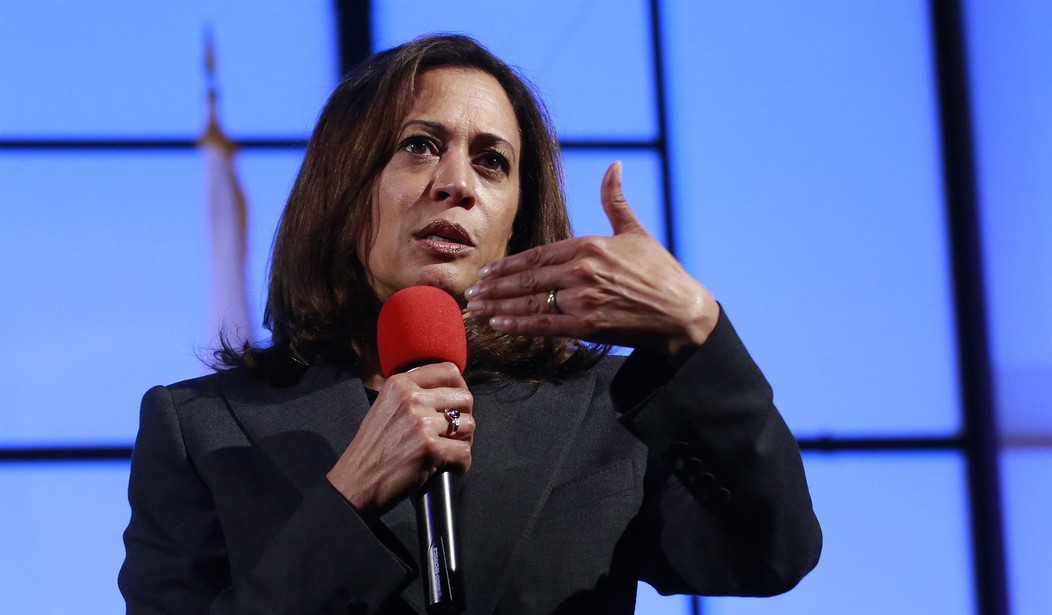The year before what likely will be the most contentious presidential election in modern history is not a good time to suffer an identity crisis; but that is precisely the position in which the Democrats finds themselves right now.
While the Party may try to put on a happy, unified public face in opposing President Donald Trump, the full throes of such an identity crisis are wreaking havoc behind the scenes. To describe it as a conflict of “multiple personalities” would not even explain the half of it. Democrats are in a complete existential meltdown.
Let’s start with a quick overview of where the Democratic Party is today. The two Establishment front runners for the 2020 Presidential Sweepstakes nomination are Sens. Kamala Harris and Elizabeth Warren. The first is a former prosecutor criticized by Liberals for having been tough on minorities by locking up gang bangers; the other is a woman who employed what the Left has labelled “cultural appropriation” to portray herself as a minority in order advance her career.
Then there’s the “people’s favorite” (as measured by small donor-fundraising) – Sen. Bernie Sanders, a septuagenarian socialist whose popularity soared by rebuking the Democratic establishment, represented by Sens. Harris and Warren.
Things are no easier for Democrats in the House, where an aging Rep. Nancy Pelosi struggles to maintain control over a crop of freshman Members who have made clear their desire to not play by the rules. Tensions bubbled to the surface earlier this month when Pelosi threw a bucket of cold water on Rep. Alexandra Ocasio-Cortez’s “hot” Green New Deal. “The green dream, or whatever they call it, nobody knows what it is, but they’re for it, right?” Pelosi said dismissively.
Recommended
Jockeying to define the tone and future direction of either of the two major political parties is typical in any presidential election cycle, but the Democratic Party’s current identity crisis goes much deeper. The utter collapse of the Clinton dynasty in 2016 following Barack Obama’s largely rudderless eight years, left a huge vacuum yet to be filled by Pelosi, Chuck Schumer, Joe Biden, or anyone else. The glaring albatross around the neck of the national Democratic Party is “what does the Party stand for?”
Taking a cue from previous campaigns, those candidates currently “leading” the Democrat field, have chosen the easier path of defining what they are not, rather than offering a coherent description of what they stand for. Sooner or later, such waffling will catch up to them, but for now it is somewhat amusing to watch them squirm when asked if they are – like Bernie Sanders proudly admits he is – “Democratic Socialists.”
When she recently was asked in New Hampshire to define what a “Democratic Socialist” was -- since she recently had declared herself not to be one -- Harris demurred, smiled awkwardly and mumbled generalities about the wonderful things she would do if elected president. What should have been an easy declaration that she believes in mainstream and time-honored principles of Democratic presidents past rather than socialism, Harris instead offered a lesson in obfuscation.
Harris’ verbal floundering reveals the rocky shoals awaiting any Democrat who dares advocate even a slightly more mature policy agenda than the “free stuff for everyone” approach being hawked by Sanders and the Ocasio-Cortez youth wing of the Party. Sen. Amy Klobuchar, for example, received a heavy dose of public scorn from her fellow “progressives” recently, when she audaciously expressed a mild level of caution about rushing toward the “Medicare for all” rainbow that has mesmerized so much of the Democrat electorate. And Liberals ripped into Sen. Dianne Feinstein just last week when she lectured a group of school children and their adult chaperones against blindly buying into the absurdly costly and poorly constructed “Green New Deal” they childishly demanded.
In an environment where endorsing even slightly moderate positions is met with immediate and severe scorn, Kamala Harris will not be the last of her Party’s contenders to duck questions that otherwise would force at least a degree of substance and reasoned thought. The real danger in candidates taking such squishy stands is that the policy vacuum stays unfilled, leaving the Democratic Party itself to continue twisting slowly in the wind. Whether the GOP is sufficiently grounded in policy and principles to take advantage of that weakness, however, remains – as always – a very open question.

























Join the conversation as a VIP Member